From November 4th to 9th, 2018, the 13th Meeting of the International Committee on Global Navigation Satellite Systems (ICG-13) was held in Xi’an, China.
Over four hundred (400) representatives from sixteen (16) countries, including representatives from global or regional satellite navigation system providers like China, United States, Russia, European Union, Japan and India, representatives from ICG Member States like Italy and United Arab Emirates, ICG associate prospective members or observers from International GNSS Service (IGS), Asia-Pacific Space Cooperation Organization (APSCO) and Fédération Aéronautique Internationale (FAI), and specially-invited observers from Australia, Pakistan and Regional Centres affiliated to the United Nations were in attendance to discuss about the development of the global satellite navigation. Mr. Weng Jingnong, Executive Director of the Centre and Dean of International School, Beihang University, and Mr. Jing Guifei, Dean of BeiDou Belt & Road School, Beihang University, were invited to attend it.
During the opening ceremony, Mr. Wang Zhaoyao, Chairman of China Satellite Navigation System Committee, read out the congratulatory letter form Mr. Xi Jinping, President of People’s Republic of China. Mr. Hu Heping, Shaanxi Party Secretary and Chairman of the Standing Committee of Shaanxi Provincial People’s Congress, Mr. Xiang Libin, Vice-President of Chinese Academy of Sciences, and Mr. Luc St-Pierre, Chief of the Space Applications Section of UNOOSA delivered speeches one after another.
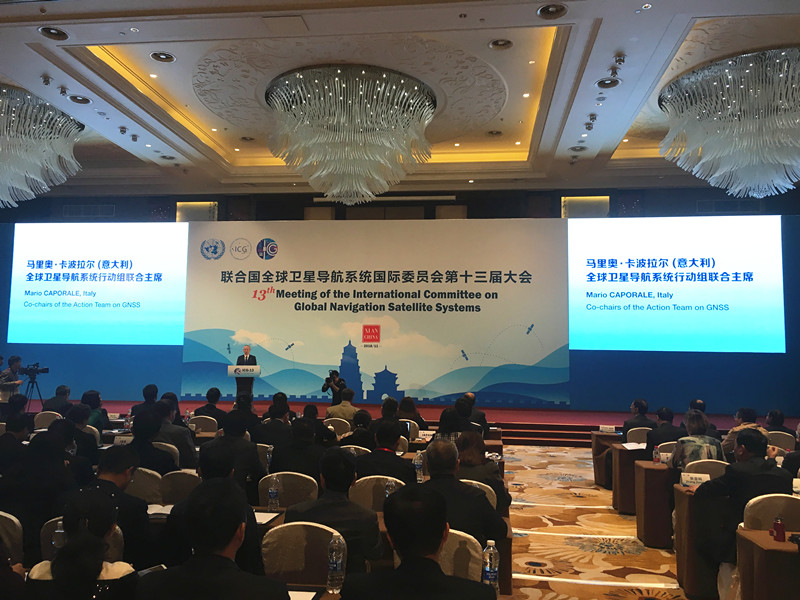
The Working Group C Session “Information Dissemination and Capacity Building” was hosted jointly by Ms. Sharafat GADIMOVA from ICG Secreariat, UNOOSA, and Mr. Weng Jingnong from Beihang University. During the session, Mr. Weng Jingnong delivered a report on “Update of GNSS&BDS International Education and Training Activities”. He mainly introduced the newest results of satellite navigation education and training capacity building done by BeiDou International Exchange Centre, Beihang University, since ICG-12 meeting, including the progress of Postgraduate Degree Programs and Short Training Programs, and the development of resource sharing, teacher/student exchanges, international communication, application demonstration verification,joint actions, etc. He hoped that the technologies like Internet, Cloud Computing, virtual reality and artificial intelligence could be used to promote the education and pedagogy reform, and improve the globalization and public service of BeiDou System.
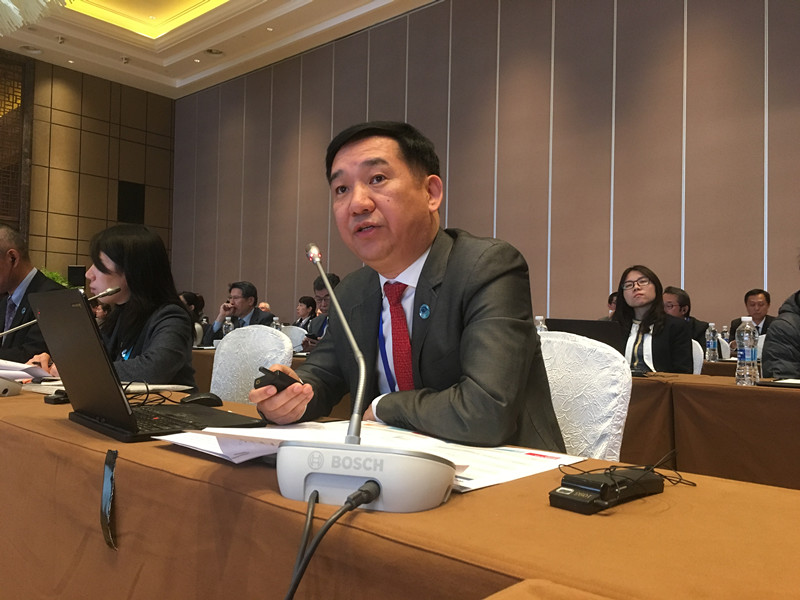
Mr. Jing Guifei reported about “Research and Practice on GNSS Education Capacity Building”, suggesting to divide the education capacity building into six (6) grade I evaluation indicators as teacher team building, teaching activities, infrastructure construction, educational environment, information dissemination and funding support, and twenty (20) grade II evaluation indicators. He also introduced the practical results that Beihang University had achieved under the guidance of this capacity building evaluation, and hoped to promote research of this subject through BeiDou International Exchange Centre and RCSSTEAP, bringing in more content concerning capacity building such as system, service and application, and create a capacity building index that covered all the ICG work.
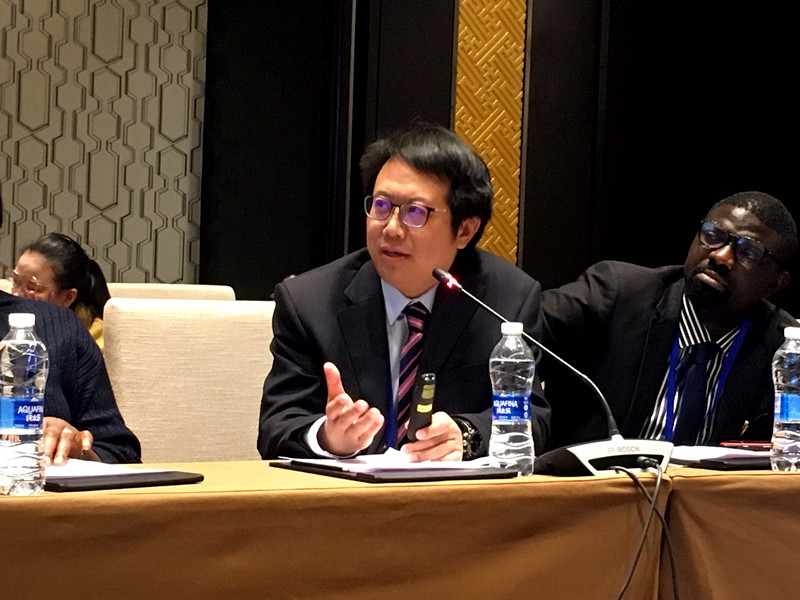
During the meeting, the representatives of the Centre fully discussed the topics related to capacity building with other delegates. Many suggestions were proposed: developing the cooperation through RCSSTEAP platform; improving negotiation, co-building and sharing among Regional Centres; achieving the win-win and suitable development in the aspects of talent co-cultivation, teacher/student exchanges, expert visits and joint actions; further promoting the capability to cultivate international satellite navigation talents; perfecting the course and practice system construction, redacting BeiDou textbooks.
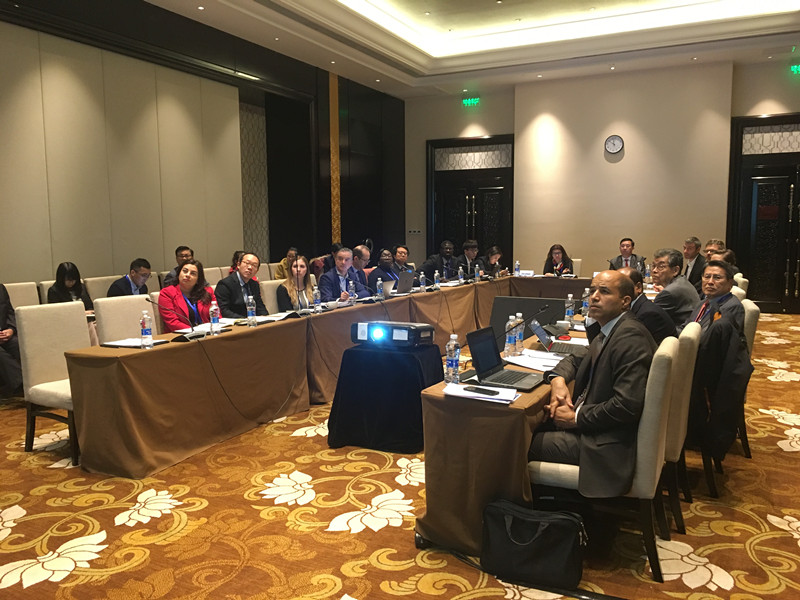
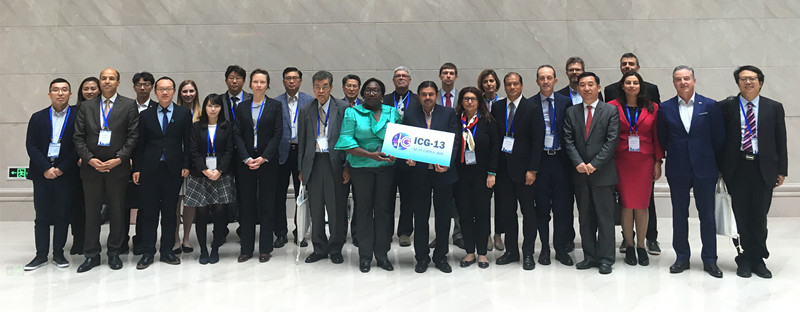
ICG-13 is the second ICG meeting held in China after ICG-7 which took place in Beijing in 2012. In form of opening ceremony, plenary session, providers’ forum meeting, working group session, this international navigation grand meeting generated discussions around themes such as the compatibility, mutual operation and globalized applications of global satellite navigation system, and provided a good exchange platform for experts from different countries. During the same period, Ancient Chinese Navigation Technology Exhibition and BeiDou System Construction and Applications Exhibition were held to show the world the series of navigation and location, time service and astro observation technologies in ancient China like compass, and the modern achievements of BeiDou System construction and applications.
BeiDou System entered the global networking intensive launch period from 2018. Seventeen (17) BeiDou No.3 group satellites have been successfully launched so far. By the end of the year, two (2) networking satellites will be launched to create the basic system and benefit the “Belt and Road” countries and regions.

